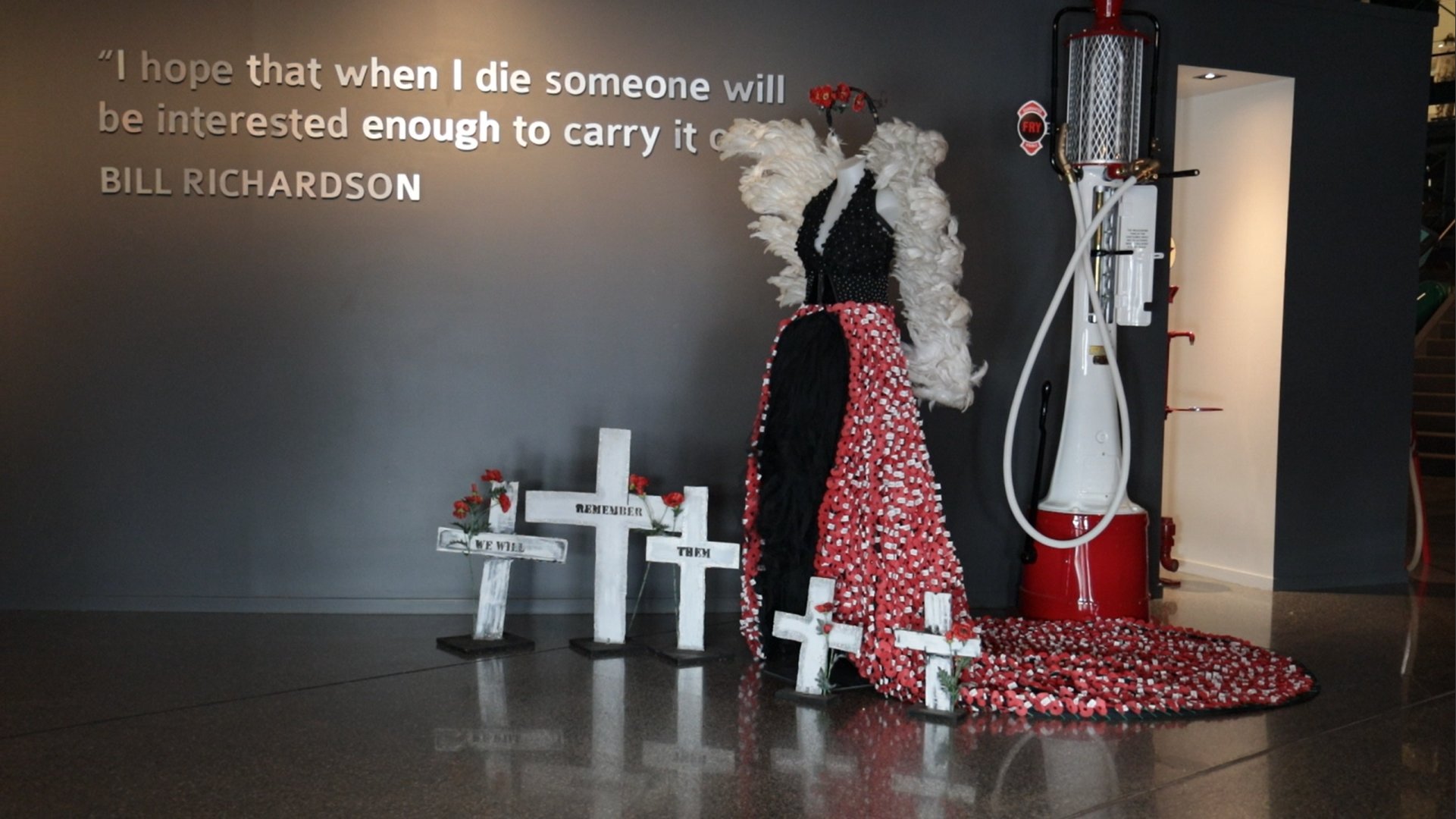
After being on display at Wanaka’s Warbirds & Wheels Museum, Anzac Angel, created by Queenstown designer Charlotte Graff, has found a new home in the Deep South.
As part of commemorating Anzac Day, the crafted piece is now part of the permanent collection at Bill Richardson Transport World, in Invercargill.
Ms Graff said she was delighted to have her piece displayed there.
She created the piece for the WOW Wearable Art Show in 2015, but it ended up being displayed at the Wanaka Wearable Art show and, subsequently, at Warbirds & Wheels.
When the space closed in 2021, she wanted to find a new home for the garment and the RSA helped to secure what she considered to be a great location.
"It is awesome and I’m so stoked to be there.
"I’m glad to exhibit there and to have created a piece that people will stand and reflect on."
She decided to design a dress to commemorate the centenary of the Gallipoli campaign in 2015.
Each year on Anzac Day, New Zealanders mark the anniversary of the Gallipoli landings on April 25, 1915.

On that day, thousands of young men stormed the beaches on the Gallipoli Peninsula.
For eight months, New Zealand troops, alongside those from Australia, Great Britain and Ireland, France, India and Newfoundland, battled harsh conditions and Ottoman forces fighting to protect their homeland.
By the time the campaign ended, more than 130,000 men had died — at least 44,000 Allied soldiers, who included 2779 New Zealanders.
She said it took about three months to create the dress, which has a train about 2m long and 1.5m wide.
One of the poppies had a personal connection — it represented her great-uncle Henry Law.
"It is always nice to have new ways to acknowledge the power of the sacrifice those men gave.
"To make people reflect ... It is quite important to do that — especially with the world as it is today.
"It’s never far away, war, and how lucky we are to live in peace in New Zealand, at least."









